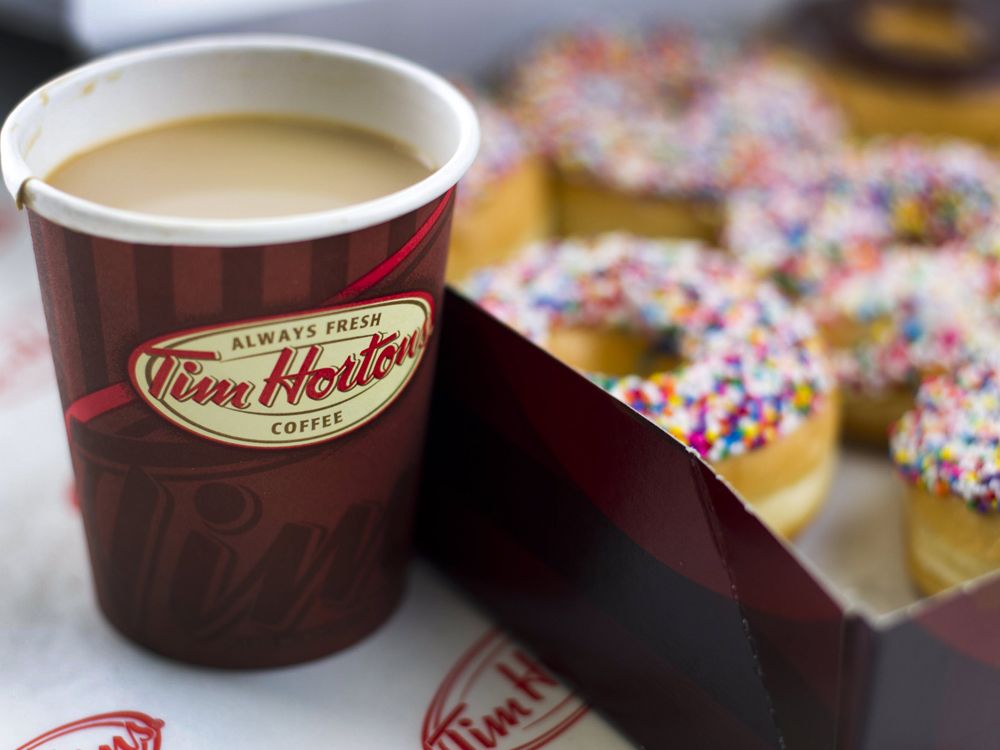Tim Hortons sales have almost bounced back from pandemic lows

Online ordering and delivery rise to a third of parent RBI’s sales

Article content
Tim Hortons has almost fully recovered from the US$1.2-billion hit it sustained during the pandemic, with annual sales in 2021 coming close to 2019, according to an earnings update from parent company Restaurant Brands International Inc (RBI).
Article content
The coffee chain’s revenues have historically depended on morning commuters, who all but disappeared in the abrupt shift to working from home. That has forced fast-food companies to get better at online ordering and delivery, a channel that grew 65 per cent in 2021 and now represents about a third of all sales at RBI restaurants.
RBI, which also owns Burger King, Popeyes Louisiana Kitchen and the newly acquired Firehouse Subs brand, said COVID-19 hurt its businesses in 2021, but not to the same extent as 2020.
Sales at Tim Hortons were roughly US$6.7 billion in 2019 and fell to US$5.5 billion in 2020. In 2021, sales climbed back to US$6.5 billion. (But Tim Hortons also has 359 more stores than it did in 2019, for a total of 5,291.)
Article content
As the pandemic hit in 2020, Tim Hortons was in the early stages of an overhaul. RBI acknowledged its relentless experiments with the Tim Hortons menu were turning off customers, including a quickly abandoned Beyond Meat burger, and announced it was returning the brand to its coffee-and-breakfast roots. In the two years since, the chain has rolled out a series of new improvements to its breakfast menu, including the popular Timbiebs collaboration with Justin Bieber, and the switch to fresh-cracked eggs for breakfast sandwiches.
“You can expect to see more from this exciting partnership in the year ahead,” Cil said on a call with financial analysts on Tuesday morning.
In the fourth quarter of 2021, sales were US$1.74 billion compared to US$1.48 billion in the previous year, and US$1.68 in Q4 2019. Same-store sales — a metric that gives a cleaner look at year-over-year performance in retail by ignoring the impact of new stores — grew by 10.3 per cent at Tim Hortons in the fourth quarter ended Dec. 31. In the same period last year, same-store sales declined by 11 per cent.
Scotiabank analyst Patricia Baker expected the “quality enhancements” at breakfast to help push same-store sales growth in the fourth quarter, along with a favourable comparison to 2020. Tim Hortons’ same-store sales growth was just below forecasts of 10.6 per cent, according to Baker’s preview note to investors.
RBI said labour shortages forced some locations to reduce operating hours during its fourth quarter.
• Email: jedmiston@nationalpost.com | Twitter: jakeedmiston



